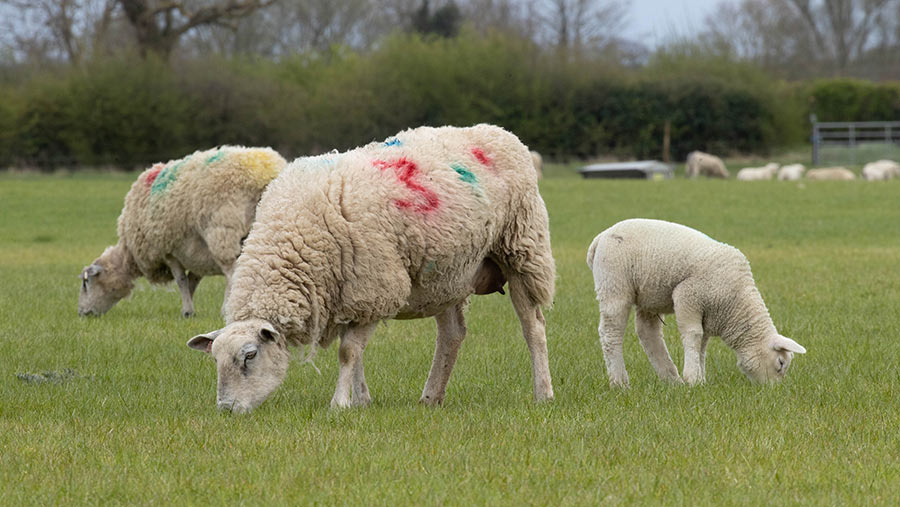Greater chance of bluetongue spreading as temperatures rise
 © Tim Scrivener
© Tim Scrivener Warmer conditions could lead to a jump in the number of bluetongue cases in the UK, with midges that spread the virus most active between April and November.
The UK has been in a seasonal low vector period during the winter months, with fewer cases being found.
However, as temperatures increase during spring, farmers have been urged to remain vigilant with the overall risk classed as “medium” by authorities.
There have been 126 bluetongue cases in England since the initial outbreak in November 2023, across 73 holdings in Kent, Norfolk, Suffolk and Surrey.
See also: Bluetongue control zone restrictions due to be lifted
National Sheep Association chief executive Phil Stocker said that, although the present outbreak had been fairly isolated, it is perfectly possible the disease could be far-reaching across the UK as the year progresses.
Current risks
- There is stil no vaccine for the bluetongue virus serotype 3 (BTV 3) strain, which has been found in the UK. (There are existing vaccines for BTV 1, 2, 4, and 8.)
- Defra has found evidence which suggests the BTV 3 strain may be able to overwinter in livestock due to transplacental transmission, or from germplasm.
- A further 266 cases of the BTV 3 strain have been reported in the Netherlands alone in the past three months, as well as new cases in Germany, and Italy.
- Italy has also recently had cases of BTV 4 and BTV 8, while Spain reported a case of BTV 4 in February.
- In France, a new strain of BTV-8 has been found, though existing vaccines are still working.
The latest analysis by the Animal and Plant Health Agency (Apha) said: “It should be noted that, if disease continues to circulate on the Continent, the risk of windborne incursion will likely increase once spring arrives as weather conditions will become more suitable for virus replication and culicoides activity.”
It also said: “Livestock owners are strongly advised to source replacement stock responsibly and consult with their private veterinarians to put in place controls preventing the introduction of bluetongue virus.”
